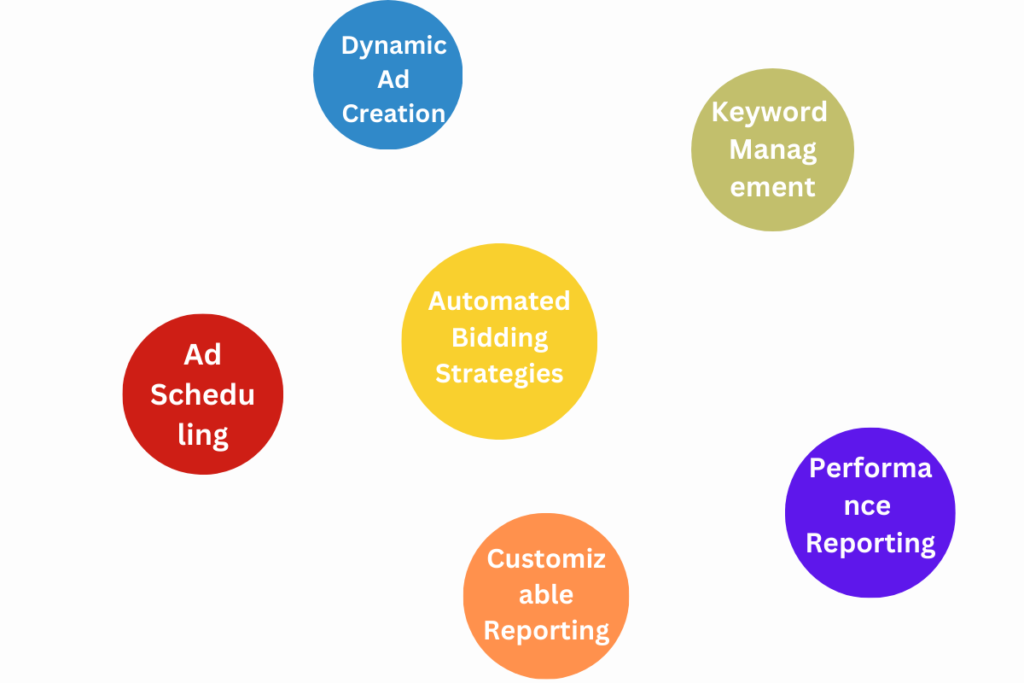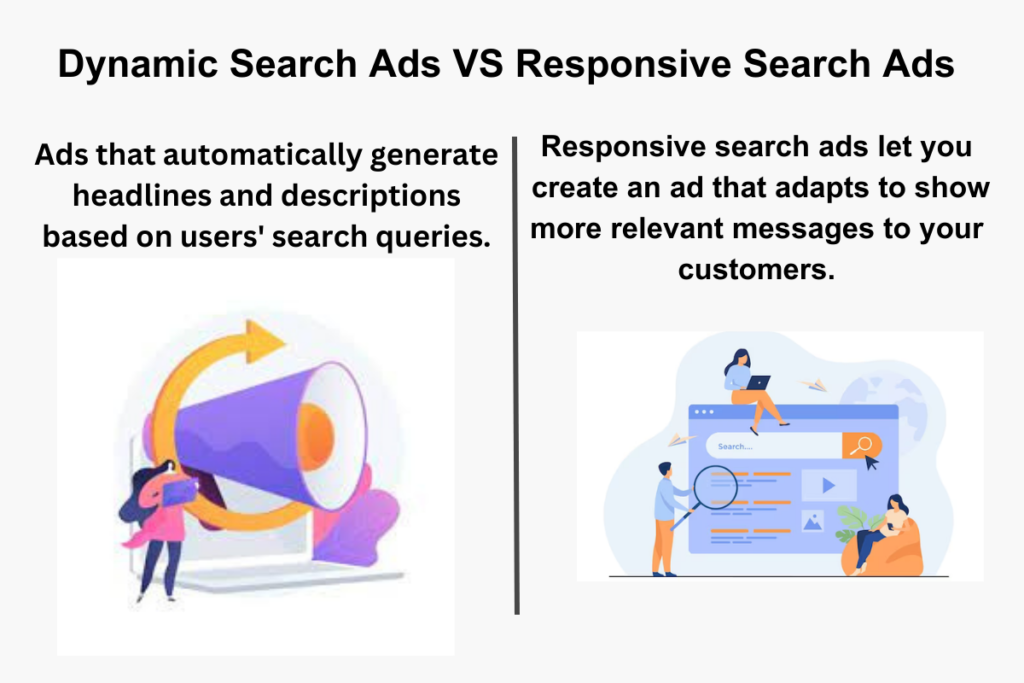In the fast-paced realm of digital marketing, Pay-Per-Click (PPC) automation has emerged as a powerful tool for advertisers seeking to streamline and optimize their campaigns. Individuals often search what is PPC automation over the internet. This blog will explain all you need to know about pay per click.
What is PPC Automation
PPC automation refers to the use of technology and algorithms to automate various aspects of the PPC advertising process, ultimately enhancing efficiency and improving campaign performance. From bid management to ad creation, automation tools are designed to minimize manual intervention while maximizing the impact of your PPC efforts.
Leveraging PPC Automation Effectively
Automated Bidding Strategies
One key element of PPC automation lies in automated bidding strategies. Platforms like Google Ads offer smart bidding options, such as Target CPA and Target ROAS, which automatically adjust your bids based on historical data and user behavior. By entrusting the bidding process to automation, advertisers can optimize for their specific goals, whether it’s maximizing conversions or achieving a target return on ad spend.

Dynamic Ad Creation
Dynamic Search Ads and Responsive Search Ads are examples of automation in ad creation. These formats dynamically generate ad headlines and descriptions based on users’ search queries, tailoring the message to be more relevant and engaging. This not only saves time but ensures that your ads resonate with the specific needs of potential customers.

| Feature | Dynamic Search Ads (DSA) | Responsive Search Ads (RSA) |
| Definition | Ads that automatically generate headlines and descriptions based on users’ search queries. | Ads that allow advertisers to input multiple headlines and descriptions, and Google dynamically tests different combinations to optimize performance. |
| Ad Components | Dynamically generated headlines and descriptions. | Multiple headlines (up to 15) and descriptions (up to 4) provided by the advertiser. Google dynamically combines these elements. |
| User Query Matching | Matches user queries to dynamically generated content. | Matches user queries to pre-defined combinations of headlines and descriptions provided by the advertiser. |
| Automation Level | High automation – Google dynamically creates the ad content. | Moderate automation – Advertisers provide the components, and Google automates the testing and optimization process. |
| Customization Control | Limited control over individual ad elements as they are dynamically generated. | More control over the ad elements provided, allowing advertisers to influence the messaging. |
| Testing and Optimization | Automatically optimized based on user interaction with the ads. | Google tests different combinations of headlines and descriptions to determine the most effective combinations. Advertisers can view performance insights. |
Ad Scheduling
For those looking the answer of what is PPC Automation should know that PPC automation allows you to schedule your ads strategically. Therefore, by analyzing when your target audience is most active, you can automate the scheduling of your ads to maximize visibility during peak times. This ensures that your budget is allocated efficiently, capturing the attention of potential customers when they are most likely to convert.
Keyword Management
Automated tools can assist in keyword management by identifying high-performing keywords, suggesting new ones, and even excluding underperforming terms. This eliminates the need for constant manual monitoring and adjustment, allowing advertisers to focus on broader strategic aspects of their campaigns.
Performance Reporting
PPC automation tools provide robust reporting functionalities, offering insights into key performance metrics. These insights help advertisers make data-driven decisions and refine their strategies. Automated reports can be scheduled, saving time on manual data gathering and analysis.
One notable advantage of PPC automation tools is the ability to generate automated reports. This feature allows advertisers to schedule regular reporting intervals, saving considerable time that would otherwise be spent on manual data gathering and analysis. The automation of reporting processes streamlines the workflow for advertisers, enabling them to focus on interpreting data and implementing strategic adjustments rather than spending hours on repetitive manual tasks.
Automated reports offer a detailed overview of key performance indicators (KPIs) such as click-through rates, conversion rates, cost per click, and return on ad spend. By presenting this information in a clear and organized manner, these reports facilitate a quick and accurate assessment of campaign effectiveness.
Comprehensive Metrics Tracking:
- PPC automation tools offer a wide array of metrics to track, including click-through rates (CTR), conversion rates, cost per click (CPC), and return on ad spend (ROAS).
- These metrics provide a holistic view of campaign performance, allowing advertisers to assess the effectiveness of their strategies.
Real-time Data Analysis:
- Automation tools enable real-time data analysis, ensuring that advertisers have access to the latest information on how their campaigns are performing.
- Advertisers can react promptly to changes in the market or user behavior, optimizing campaigns for better results.
Customizable Reporting:
- Advertisers can tailor reports to their specific needs, focusing on the metrics that matter most to their business goals.
- Customization options may include date ranges, specific ad groups or campaigns, and performance comparisons across different channels.
Visualized Insights:
- Automation tools often present data in visually appealing formats such as charts and graphs.
- Visualizations make it easier for advertisers to grasp complex performance trends, identify patterns, and communicate insights with stakeholders.
Automated Report Scheduling:
- Advertisers can set up automated report schedules, streamlining the reporting process and saving valuable time.
- Scheduled reports ensure that stakeholders receive timely updates without the need for manual intervention.
Conclusion
Incorporating PPC automation into your digital marketing strategy can significantly boost the efficiency and effectiveness of your campaigns. From streamlined bid management to dynamic ad creation, automation tools offer a range of benefits that empower advertisers to focus on strategic decision-making rather than routine tasks. By leveraging these tools effectively, businesses can stay competitive in the ever-evolving landscape of online advertising.
Frequently Asked Questions
Q1: What is PPC Automation?
PPC automation refers to the use of technology and algorithms to automate various aspects of the PPC advertising process,
Q2: Are there risks associated with PPC automation?
While PPC automation offers numerous benefits, there are risks such as over-reliance on algorithms and potential loss of control
Q3: Can PPC automation work for small businesses?
Yes, PPC automation can benefit small businesses by saving time, improving targeting, and maximizing budget efficiency.
Q4: How often should I review and adjust PPC automation settings?
Regular monitoring is essential. While automation can handle many routine tasks, it’s crucial to review settings periodically,




